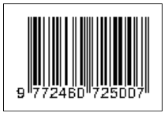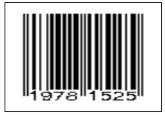Implementasi Protokol Diffie-Hellman Dan Algoritma RC4 Untuk Keamanan Pesan SMS
Decky Hendarsyah(1*), Retantyo Wardoyo(2)
(1)
(2)
(*) Corresponding Author
Abstract
Abstrack— SMS now becomes such a need for cellular phone users to communicate to other people. But the cellular phone users do not realize that the sent messages could be intercepted or changed by an unwanted party. Therefore it requires a security in sending an SMS message which is called cryptography. Given limited resources on cellular phone, then the implementation of symmetric cryptographic technique is suitable to meet the security needs of an SMS message. In symmetric cryptography, there is a symmetric key for encryption and decryption process. In order to secure exchange of symmetric keys in public channels is required of a protocol for key exchange.
This research implements RC4 symmetric cryptography to encrypt and decrypt messages, while for key exchange is using Diffie-Hellman protocol. In this research, there are modifications to the Diffie-Hellman protocol that is the calculation of the public key and symmetric key to include cellular phone number as authentication. Whereas on a modified RC4 is the key where there is a combination with cellular phone number as authentication and key randomization, and then there are also modifications to the pseudorandom byte generator, encryption and decryption of the RC4 algorithm. The system is constructed using the Java programming language in the platform Micro Edition (J2ME) based MIDP 2.0 and CLDC 1.0.
The research found that with the cellular phone number as authentication, key, encryption and decryption process automatically it is able to maintain confidentiality, data integrity, authentication and non-repudiation to the message.
Keywords— Diffie-Hellman, Key exchange, RC4, SMS Secure, Symmetric Cryptography.
Full Text:
PDFArticle Metrics
Refbacks
- There are currently no refbacks.
Copyright (c) 2015 IJCCS - Indonesian Journal of Computing and Cybernetics Systems

This work is licensed under a Creative Commons Attribution-ShareAlike 4.0 International License.
View My Stats1







